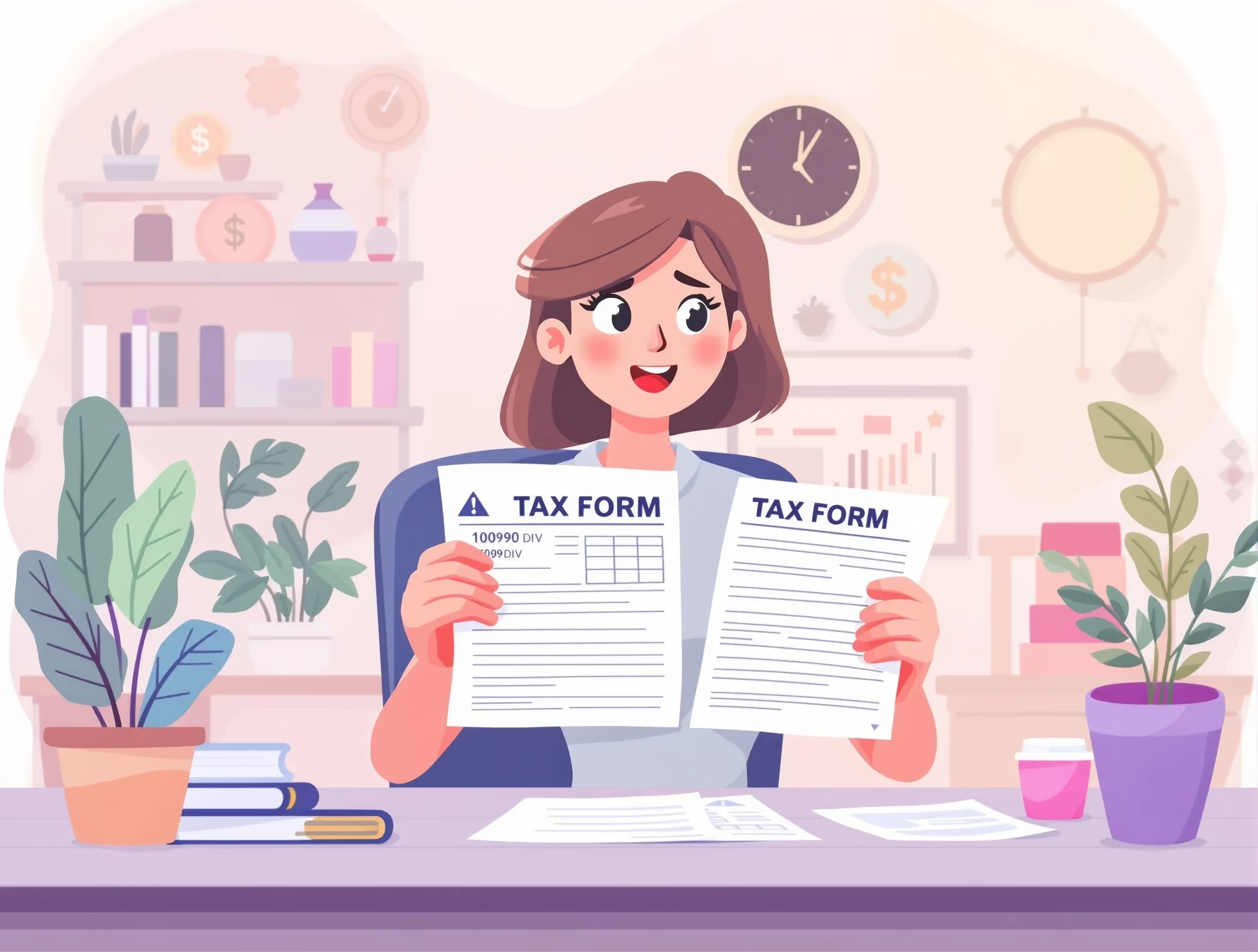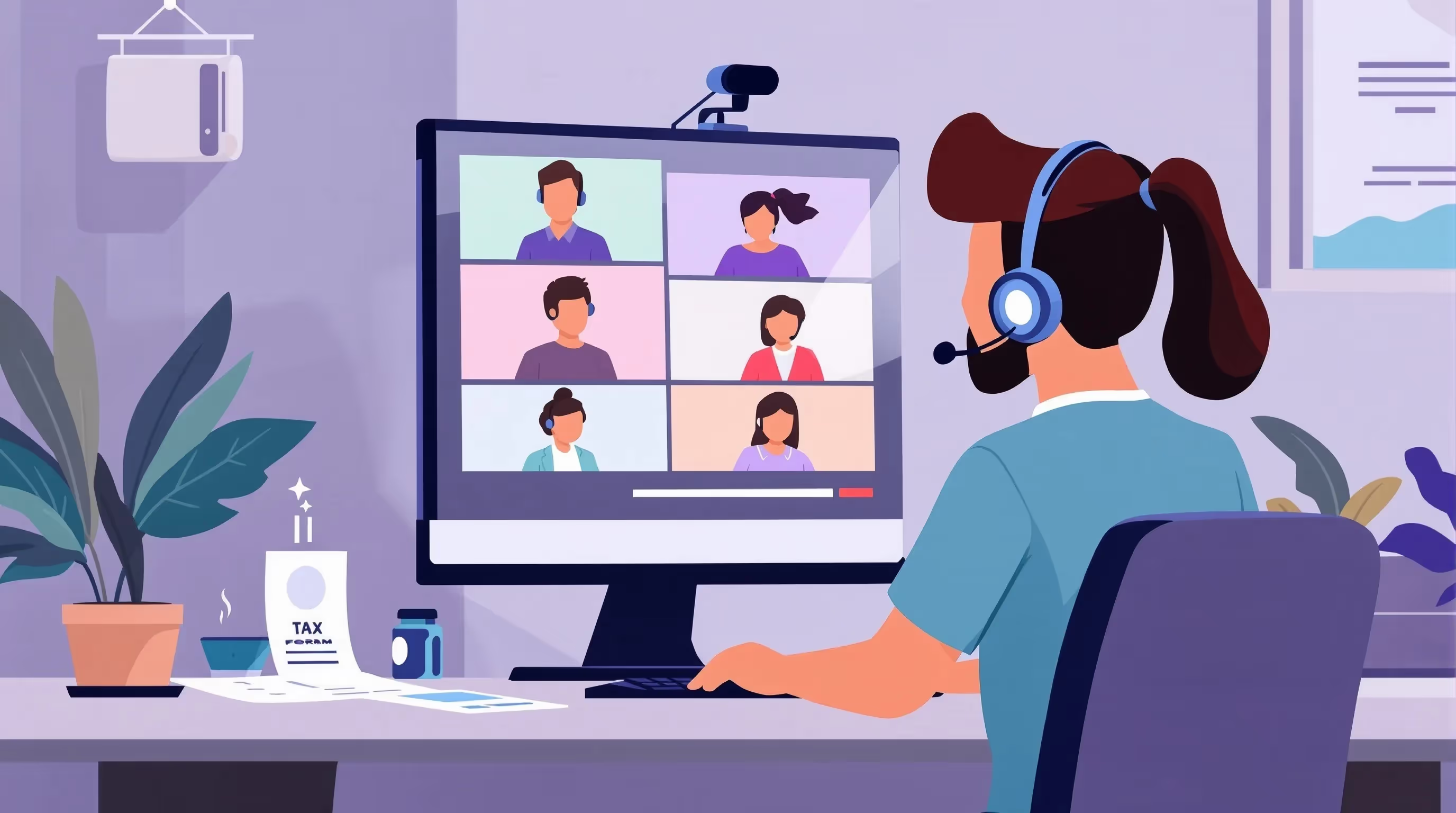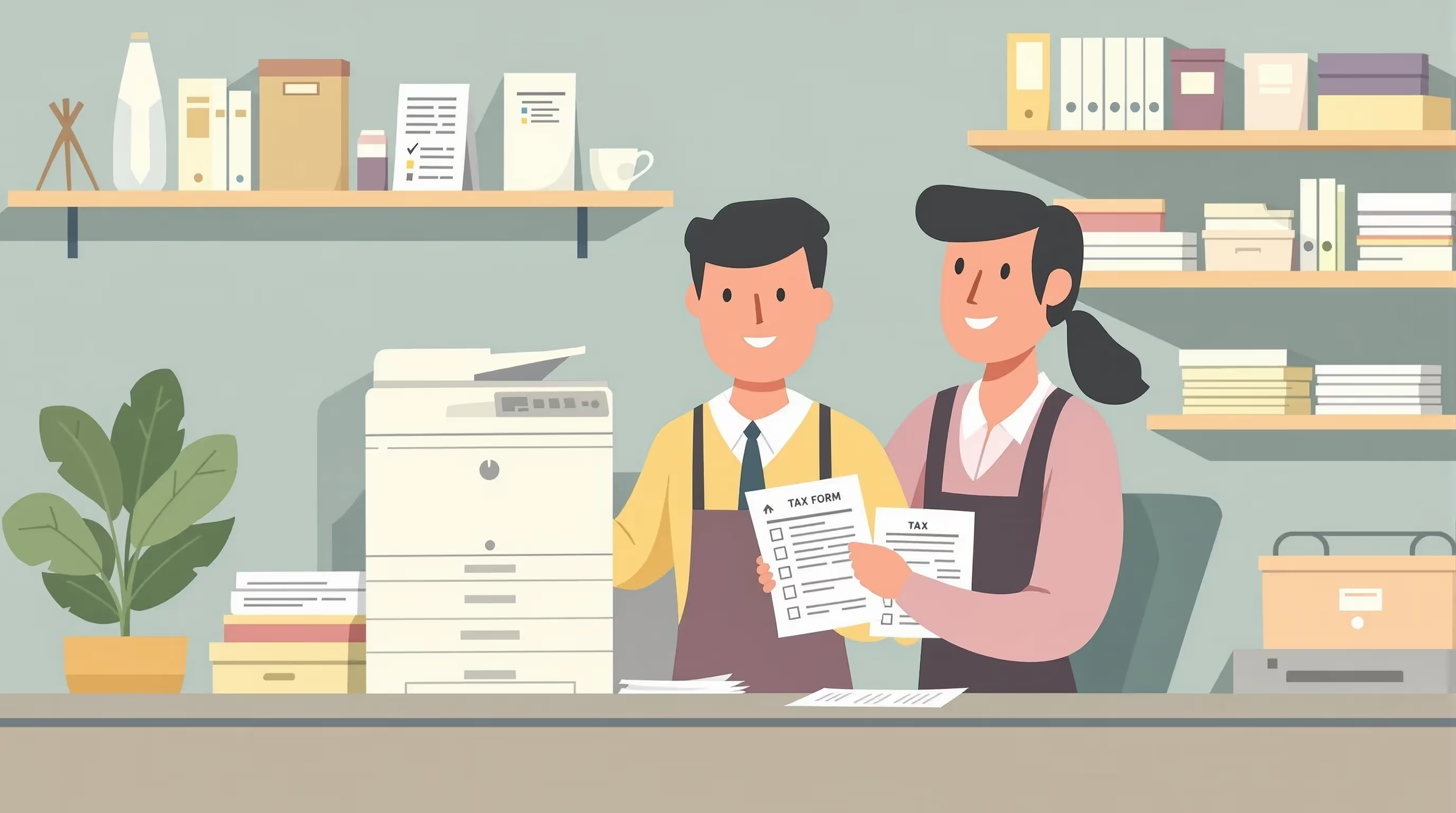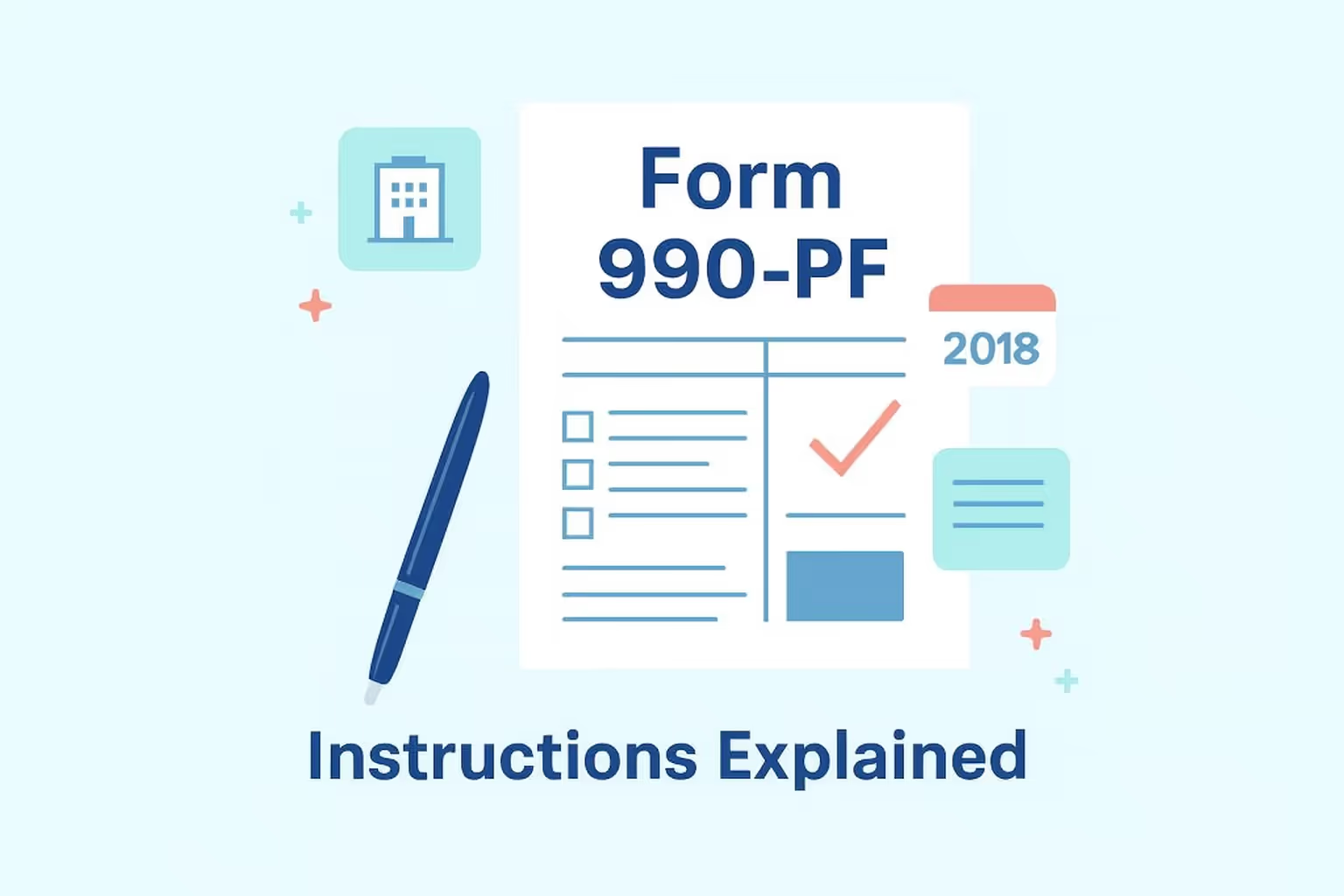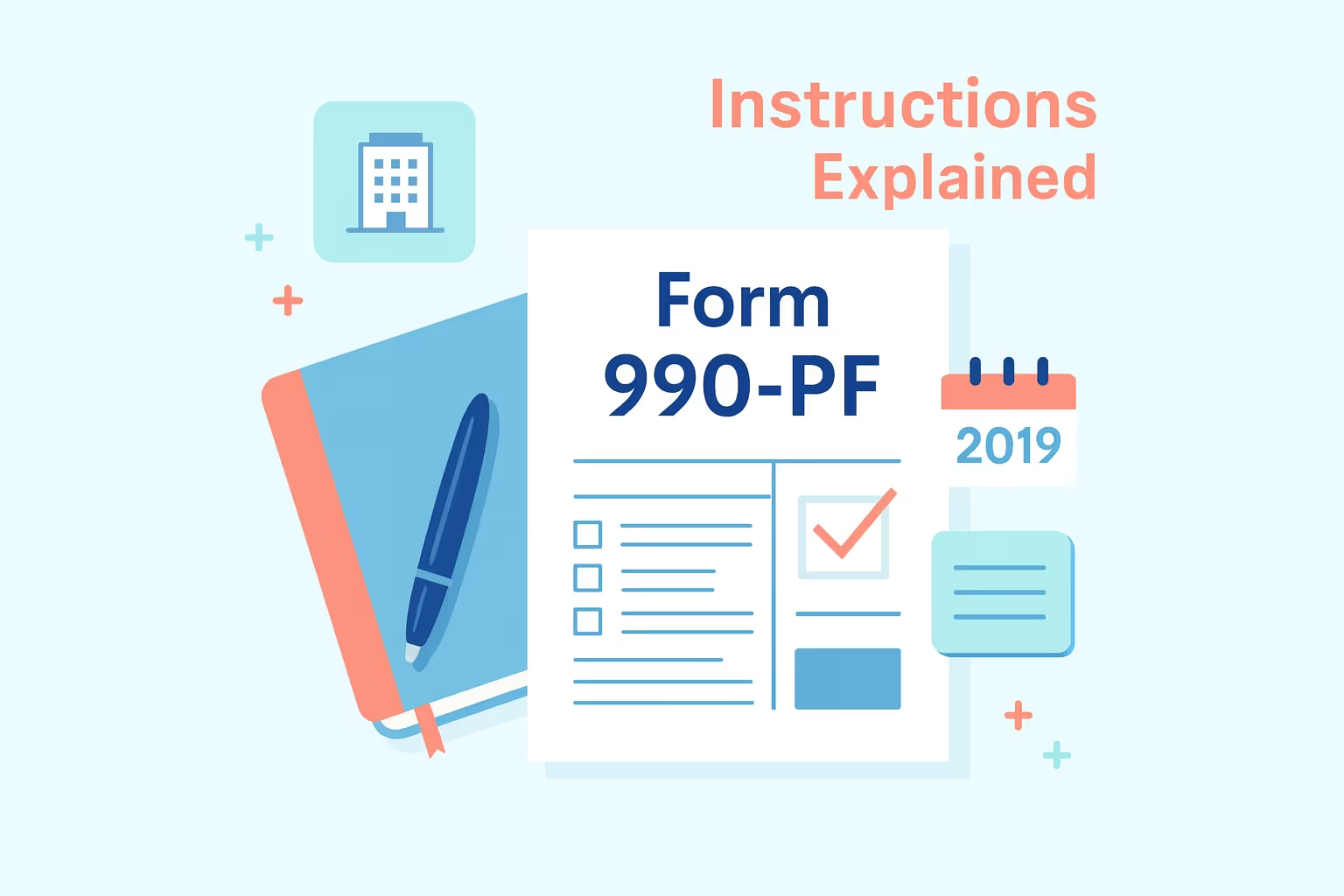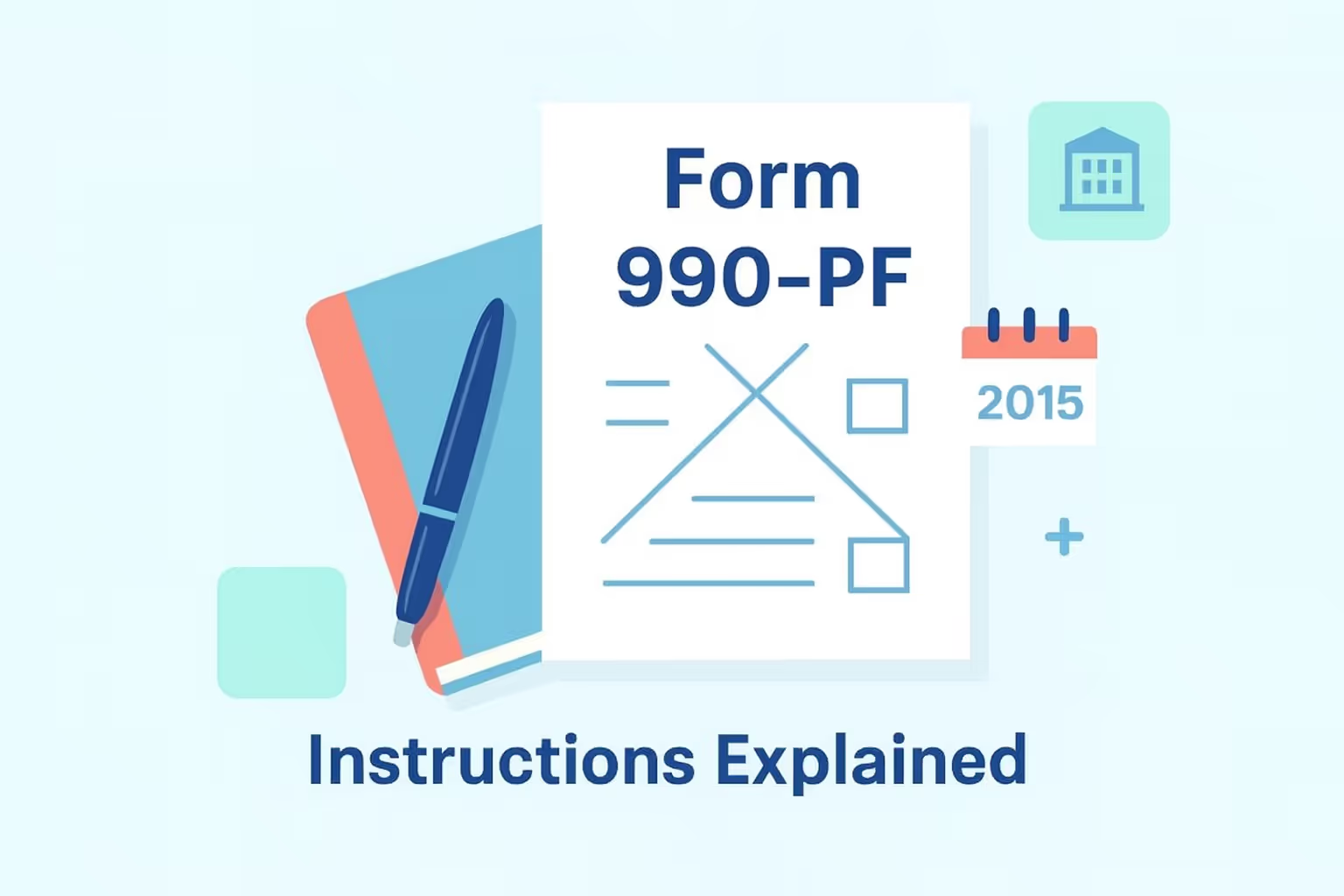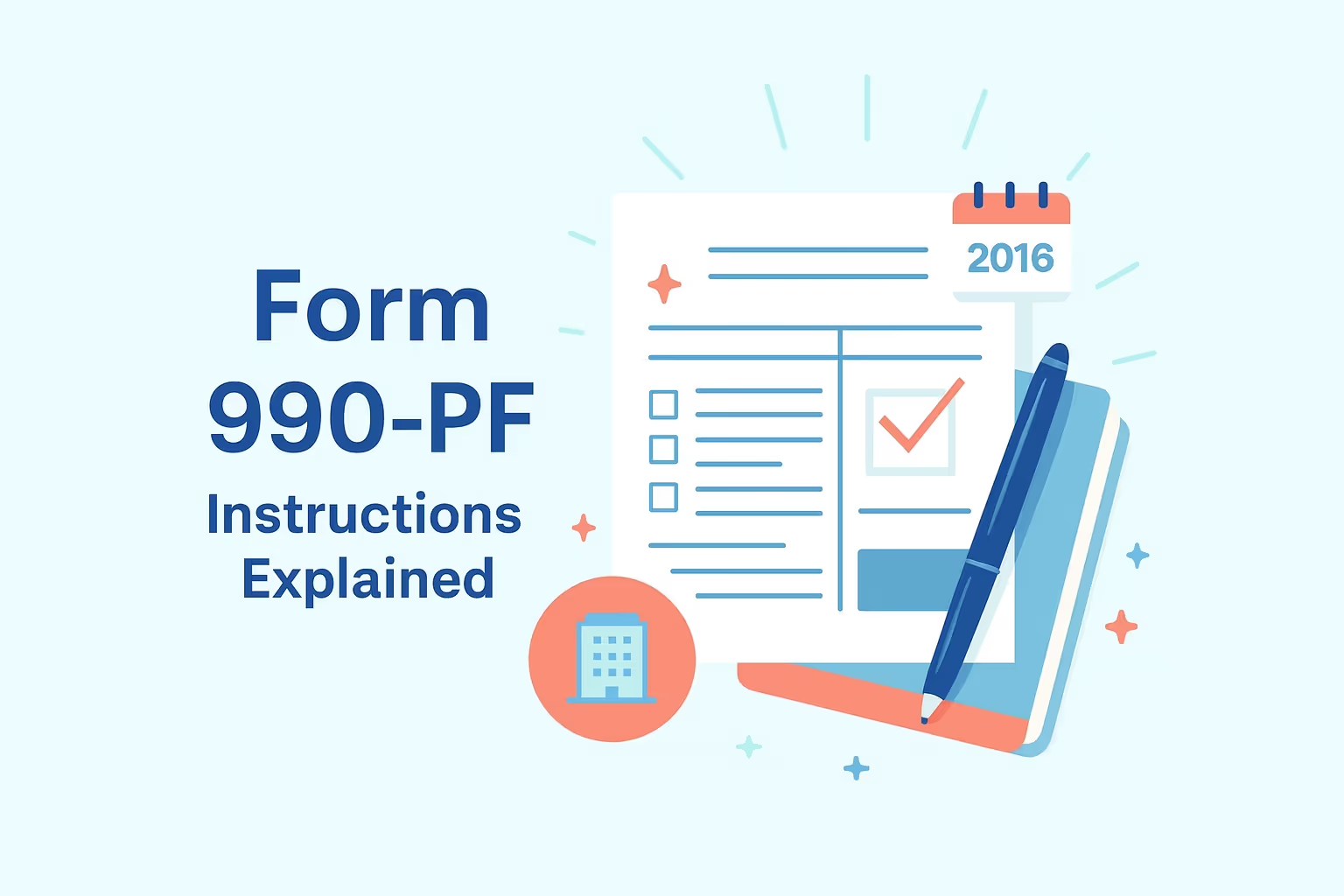
What IRS Form 990-PF (2020) Is For
IRS Form 990-PF for 2020 is the annual return that every private foundation must file to report charitable distributions, net investment income, and overall financial activity. The form helps calculate excise tax based on investment income, confirm tax-exempt status, and document compliance with federal income tax rules. It applies to U.S. and foreign foundations, nonexempt charitable trusts treated as private foundations, and organizations seeking to claim private foundation status or claiming operating foundation status.
When You’d Use Form 990-PF for 2020
A foundation files the 2020 form when reporting income taxes, net assets, charitable purposes, and administrative expenses for the tax year beginning in 2020. It is also used when filing late or amended returns to correct investment income, capital gains, adjusted net income, or minimum investment return amounts. Amended filings apply when tax remains unpaid, tax paid was incorrect, or undistributed income must be updated.
Key Rules or Details for 2020
- Flat excise tax rate: The IRS required foundations to apply a 1.39 percent excise tax, and this tax applied to all net investment income reported for the 2020 tax year. The rule replaced tiered rates and ensured consistent calculations for federal income tax obligations.
- Mandatory electronic filing: The IRS required most private foundations to electronically file the 2020 form, regardless of their accounting method. Limited exceptions allowed paper filing when electronic submission created a hardship.
- COVID-19 deadline relief: The IRS extended filing deadlines to July 15, and the extension covered organizations with a tax year beginning late in 2019. The relief applies to private foundations, foreign foundations, and exempt private foundations.
- Expanded reporting rules: Foundations needed to report charitable distributions, employee benefit plans, net assets, temporary cash investments, and program-related investments. These reporting requirements ensured transparency and supported public inspection rules.
Browse more tax form instructions and filing guides in our Forms Hub.
Step-by-Step (High Level)
Step 1: Gather financial and organizational documents
Collect all financial accounts, mutual fund statements, rental income records, mortgage interest details, and program-related investments. Include documents showing capital gain net income, gross income, adjusted gross income, and any unrelated business income. These records ensure the foundation reports income accurately.
Step 2: Complete the correct 2020 form version
Use the official 2020 Form 990-PF and follow instructions for excise tax-based calculations. Include investment income, tax-exempt interest, Social Security benefits withheld, unemployment compensation, and other income considered net investment income. Provide fair market value information for assets.
Step 3: Report distributions and required schedules
Report charitable distributions, donor restrictions, the foundation’s charitable purposes, and information about personal benefit contracts. Attach schedules showing prohibited tax shelter transactions, excess business holdings, excess parachute payment matters, and certain personal benefit contracts. Confirm that nonexempt charitable trusts treated as private foundations follow all requirements.
Step 4: File electronically and verify identifiers
Submit the return electronically through approved software. Confirm the employer identification number, the organization’s tax year, the foundation manager's signatures, and the foundation’s tax year beginning date. Electronic filing provides faster processing and reduces errors for tax-based calculations.
Step 5: Retain copies and confirm public disclosure
Keep copies of all schedules, the completed return, and proof of estimated tax payments for a minimum of three years. These records must remain available for public inspection, particularly for taxable private foundations and exempt foreign organizations seeking to maintain their tax-exempt entity classification.
Learn more about federal tax filing through our IRS Form Help Center.
Common Mistakes and How to Avoid Them
- Incorrect excise tax calculation: Some filers calculate excise tax incorrectly, which increases tax liability. Review investment income records carefully to avoid errors and ensure the calculation aligns with IRS rules.
- Misreporting net assets: Filers sometimes omit asset changes, which affects fair market value reporting. Compare beginning and ending fund balances to ensure accuracy and avoid IRS questions.
- Missing charitable distribution details: Some foundations leave incomplete entries, which leads to compliance issues. Provide clear explanations to avoid delays and to confirm that distributions comply with charitable purpose rules.
- Unreported undistributed income: Filers occasionally fail to track required minimum distribution amounts. Check payout requirements carefully to avoid penalties and prevent additional excise taxes.
- Incorrect status claims occur when organizations claim private foundation or operating foundation status without proper documentation. Reviewing the requirements can help avoid misclassification and potential IRS corrections.
- Omitted unrelated business income: Some organizations forget to report unrelated business income, which creates tax-paid discrepancies. Review all income sources to prevent errors and ensure full compliance.
Learn more about how to avoid business tax problems in our guide on How to File and Avoid Penalties.
What Happens After You File
The IRS typically processes electronically filed 2020 returns within several weeks, while paper submissions take longer. You receive confirmation once the Internal Revenue Service accepts the filing, and any unpaid tax triggers a notice showing how much income tax or excise tax remains unpaid. Refunds for overreported net income or investment income are issued after processing. If the IRS identifies errors, it sends a letter explaining proposed changes and any additional information needed.
FAQs
How does IRS Form 990 for 2020 affect private foundations reporting net assets?
The 2020 form requires detailed reporting of net assets, including fair market value and fund balances. Private foundations must ensure that all year-end asset amounts match their financial accounts and accurately reflect total investment income.
What estimated tax rules apply when private foundations need to report undistributed income?
Estimated tax rules apply when undistributed income increases tax liability. Foundations may need to make estimated tax payments if they expect to owe excise tax or income tax for the tax year.
How do private foundations calculate minimum investment return and temporary cash investments?
The minimum investment return calculation includes the fair market value of securities, temporary cash investments, and other assets. Foundations compute the return to determine required charitable distributions.
How do administrative expenses affect fair market value reporting for foundation managers?
Administrative expenses do not change fair market value but must be reported accurately. Foundation managers ensure these expenses match fund balances and accounting records.
How does the accounting method affect reporting the employer identification number on a tax-based return?
The accounting method does not affect the employer identification number, but it determines how income, rental income, and expenses are reported throughout the tax year.
How should private foundations document rental income on Form 990-PF?
Rental income must be reported separately and included in gross income. Foundations verify documentation to ensure the amount aligns with financial accounts and investment income rules.
How does net asset reporting work when undistributed income affects estimated tax requirements?
Net asset reporting must include amounts of undistributed income. If the income increases tax liability, foundations may need to adjust estimated tax payments accordingly.
For more resources on filing or understanding prior-year IRS forms, visit our guide on Nonprofit & Exempt Organization Forms.






